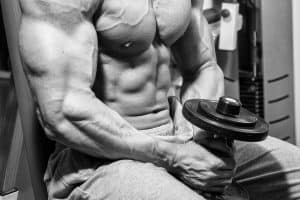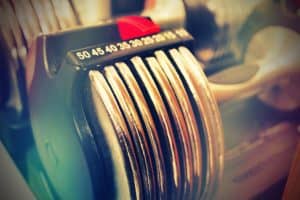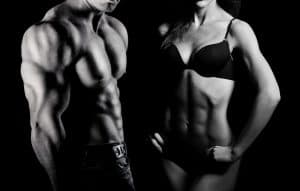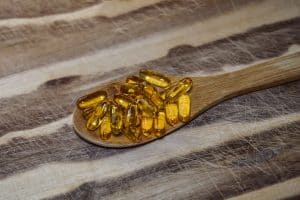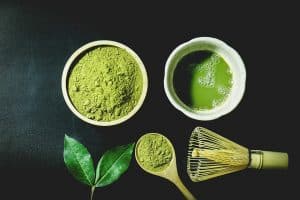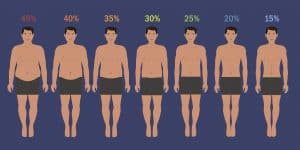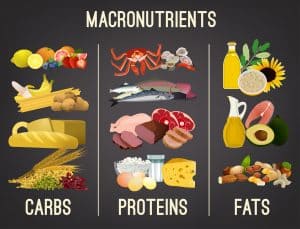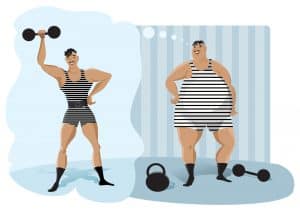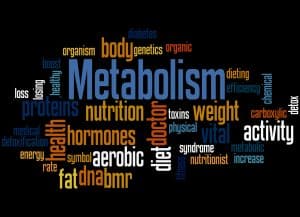So you’re dieting and it’s going well.
You are training hard and the results are showing.
Your rest day starts great and halfway through …
You feel hungry!
Your body is screaming … “I need to eat”.
You wonder …. What the heck?!!
Is my brain playing tricks on me or am I really hungry? Do I need to eat?!
You eat and the next day …
You train hard, hop in the scale
And sh*t!!!
You gained 5 pounds!
Regret hits you!
Sounds familiar? Keep reading.
Because in this post, I’m going to tell you the 4 reasons why you feel extra hungry on the days you don’t train.
Then, I’ll share with you a few tips on how to stop this feeling right away!
4 Reasons Why You Feel Hungry on Rest Days and How to Fix it.
Scientific evidence shows there are physiological factors that have the greatest impact on why bodybuilders, and athletes in general, feel hungry on the days they don’t work out.
This usually happens during the diet/cutting phase and not the bulking phase/off-season.
Energy deficit is the root cause of why you’re feeling extra hungry on rest days.
Energy deficit, or caloric deficit, is defined as the number of daily calories consumed below the total daily energy expenditure (TDEE).
The latter is the number of calories required to maintain your current body weight (which is usually 20% -30% above the basal metabolic rate – BMR).
BMR is the required amount of calories by your body in order to maintain the basic physiological needs.
Use this calculator to determine your basal metabolic rate and TDEE.
The first three main reasons why you feel hungry on rest days have to do with hormone levels, particularly, Insulin, Ghrelin, and Leptin, and their relationship to energy deficit.
1
Decrease in Insulin Sensitivity.
What does that mean?
During the workout, skeletal muscle insulin sensitivity increases. This will signal the pancreas to release the glucose (simple sugar) stored in the liver and muscles (glycogen) to be used as an energy source to fuel your workout.
The outcome of this process is appetite suppression – during and right after the workout.
During the rest days, after intense workouts, insulin sensitivity decreases, the sugar levels in the blood become low and hunger is stimulated.
- The Fix
Eat, force eat, or drink shakes post-workout. This way, you maintain high insulin sensitivity and reduce the feeling of hunger.
It’s also recommended you consume an intra-workout drink. It should consist of pre-digested carbohydrates (like Cluster Dextrin), and the full spectrum of essential amino acids.
2
Increased levels of Ghrelin, the Hunger Hormone.
The second reason has to do with the hunger hormone, Ghrelin, which is produced in the gut, and how it is stimulated.
When you are training and dieting, you’re creating a great energy deficit (that’s how you lose fat).
Energy deficit is an abnormality that the body tries to compensate for. So your body is constantly telling you to eat more even on workout days.
On the workout days, hunger is suppressed not only because of the elevated insulin sensitivity, as we mentioned above, but also because the blood flow is distributed to the extremities away from the stomach.
On the rest days, the blood flow distribution to the gut returns to the normal levels which signal more production of Ghrelin causing you to feel more hungry.
This is usually referred to as a rebound hunger from post-workout appetite suppression.
- The Fix
Satisfy the hunger by consuming more vegetables and high-fiber foods while maintaining your daily caloric intake.
Another tip that some people do is to perform a low-intensity cardio session on the rest days to keep the blood flow away from the gut and reduce the stimulation of Ghrelin.
3
Reduction in Leptin levels, the Satisfaction hormone.
Leptin is produced in the small intestines and has the opposite function of Gherlin. It is the hormone that inhibits hunger and gives you the feeling of fullness.
It was shown that on rest days, after days of intense workouts, the concentration Leptin levels decrease. This reduction is a direct response to the energy deficit created by the hard training.
When this happens you feel less satisfied and want to consume more food.
The minimum amount of caloric deficit that causes Leptin levels to decrease is about 800 Kcal. This is about 30% of a daily 2500 Kcal diet.
High-intensity workouts alone can easily create this energy deficit without even a change in diet.
- The Fix
To feel full, consume a lot of water, or better yet, diet soda with zero calories (trust me on this one).
4
Inadequate recovery caused by inadequate carbohydrates Intake.
This one is not a completely separate reason but a direct implication of the diet and hard workout.
Inadequate recovery is usually led by inadequate nutrition on workout days.
And I don’t mean in a macro-nutrients amount. I mean in a macro-nutrients type.
Carbohydrates, in particular.
When you workout (combined with diet), the levels of glycogen stored in the muscle are depleted.
The body is trying to recover those depleted carbohydrates by signaling to restore the energy to the pre-deficit levels.
This translates to eating more carbohydrates since glucose is, not just the fastest absorbed, but also the only energy source used by the brain, erythrocytes (red cells), testes, and kidney medulla (aside from ketones during fasting).
- The Fix
Hit your macros on the rest days. Do not completely cut carbohydrates. Keep them low, instead.
The Takeaway
As you saw, the root cause of why you’re feeling extra hungry on rest days is energy/caloric deficit. And that’s totally a normal feeling.
This is caused by intense workouts, diet, or a combination of both.
You are changing the body’s composition by gaining lean muscle mass and/or reducing body fat.
In this case, your body will attempt to fight this change in the composition and, in turn, compensate for lost energy by telling you to eat more.
This hunger feeling is relatively suppressed on workout days due to high insulin sensitivity.
On the days off, a combination of an increase in the hunger hormone (Ghrelin), a decrease in the fullness hormone (Leptin), and a decrease in insulin levels will cause you to feel the hunger.
The more caloric deficit you create, the less recovery your muscle gets, and the more hungry you feel, on rest days.
There are also psychological reasons that make you feel more hungry on the days you don’t workout.
These include; you feel you have earned your right to eat more, and the false sense of needing more recovery.
Do not go down this path.
In any case, if you are cutting, do not pay attention to these hunger signals. Hit your macros on workout days as well as on rest days.
You have a goal to achieve. Don’t get distracted.


